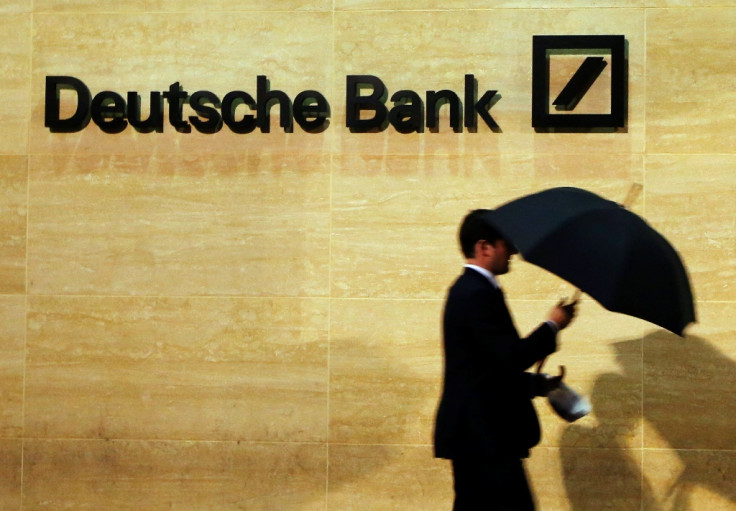Former Deutsche Bank Salesman Shigeru Echigo Admits Bribery Charges

Shigeru Echigo, a former Deutsche Bank salesman, has admitted to bribery charges in Tokyo, but stated that he was only following his bosses' instructions.
Echigo, 37, was accused of bribing a pension fund executive so that he would continue purchasing investment products.
Over the course of 15 meetings, Echigo spent roughly 900,000 yen (£5,217, €6,353, $8,776) entertaining Yutaka Tsurisawa, a former Mitsui & Co. employee, but he told the court that this is common practice among brokerages.
Echigo used financial enticements to keep Tsurisawa spending money with the bank.
Last month, Tsurisawa, was convicted in the same Tokyo court for accepting the bribes from Echigo. He was given an 18 month suspended prison sentence and ordered to repay the majority of the 900,000 yen.
Echigo has said that he did not act alone, arguing that the unit in Japan was full of colleagues acting in a similar manner, and that he was only following instructions.
"My actions as a salesman were part of systematic conduct based on the instructions and consent of my bosses at Deutsche Securities," Echigo told the courtroom.
The financial incentives used by Echigo were deemed to be illegal in Japan as they are considered public funds and authorities are urging brokerages to use better judgement when entertaining clients.
"This case has sent a strong message that banks and brokerages must be more careful when they entertain clients," said Mamoru Nagano, a professor of economics and international finance at Seikei University in Tokyo told Bloomberg Businessweek.
"Authorities globally have been tightening up oversight of the banking industry since the financial crisis to make sure that transactions comply with the law."
Echigo could face jail time of up to three years, or be hit with a maximum fine of 2.5m yen. The next hearing will take place on June 17.
Japanese authorities have been casting a keen eye over the investment fund sector since AIJ Investment Advisors president Kazuhiko Asakawa and three others were arrested on fraud charges amounting to $1.4bn.
Asakawa was accused of defrauding the country's two corporate pension funds, one in the country's capital Tokyo and the other in the northern Japanese city of Nagano. AIJ hid the losses for nearly a decade.
© Copyright IBTimes 2025. All rights reserved.






















